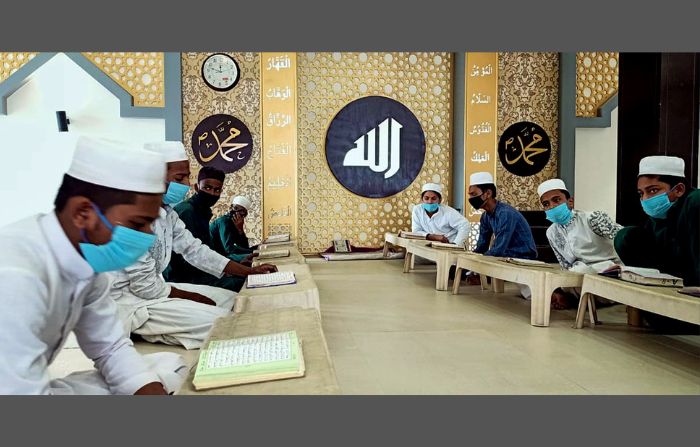- Tuesday, July 01, 2025
Iftikhar Ahmed Javed, the head of the board of madrasa education in the state, said the directive impacts 2.7 million students and 10,000 teachers across 25,000 madrasas.

By: Shubham Ghosh
AN Indian court has effectively prohibited madrasas or Islamic schools in the nation’s most populous state Uttar Pradesh, potentially widening the gap between many Muslims and prime minister Narendra Modi’s Hindu-nationalist government in anticipation of upcoming national elections beginning April 19.
The ruling, issued on Friday (22), nullifies a 2004 law regulating madrasas in the state with a population of more than 241 million, citing its infringement upon India’s constitutional secularism and mandating the transfer of students to conventional schools.
Iftikhar Ahmed Javed, the head of the board of madrasa education in the state, said the directive from the Allahabad High Court impacts 2.7 million students and 10,000 teachers across 25,000 madrasas. One-fifth of Uttar Pradesh’s population are Muslims.
Read: Why Modi is so popular? Decoding India PM’s appeal through trait theory
The state is also significant in terms of electoral politics since it sends 80 parliamentarians to the Lok Sabha or the popularly elected Lower House of the Indian parliament, the most for any state in the country, and any party that does well in Uttar Pradesh in national elections gains advantage to form government in New Delhi.
“The state government shall also ensure that children between the ages of 6 to 14 years are not left without admission in duly recognised institutions,” the court’s judges Subhash Vidyarthi and Vivek Chaudhary wrote in their order, which was made on the basis of an appeal by lawyer Anshuman Singh Rathore, Reuters reported.
Read: India politician quits party after it denies his wife election ticket
Modi’s Bharatiya Janata Party is expected to secure victory in the upcoming elections to make it three in a row after its overwhelming wins in the 2014 and 2019 elections.
However, concerns have been raised by Muslims and rights groups over alleged instances of anti-Islamic hate speech, vigilantism, and the demolition of Muslim-owned properties, which they attribute to some BJP members and affiliates.
Modi has consistently refuted claims of religious discrimination existing in India.
His BJP asserts that the government is rectifying historical injustices, exemplified by the recent inauguration of a Hindu temple at the site of a 16th-century mosque demolished in 1992 by right-wing activists. Many Hindus believe the mosque was constructed on the birthplace of the revered deity, God-king Ram, and atop a temple razed during the reign of 15th century Mughal ruler Babur.
Rakesh Tripathi, a spokesperson for the Uttar Pradesh chapter of the BJP, which has also been running the state government since 2017, said it was not against madrasas and was concerned about the education of Muslim students.
“We are not against any madrasa but we are against discriminatory practices. We are against illegal funding, and the government will decide on further actions after going through the court’s order.”
Modi’s office did not immediately respond to an email from Reuters on Saturday (23) seeking comment on the court ruling.
Representing the federal government as a respondent in the case, Sudhanshu Chauhan argued before the court that “religious education and religious instructions of a single religion cannot be included in school education and the state government has no power to create statutory education boards permitting religious education”.
He clarified that the government has no intention of reviving a federal policy halted two years ago, which had previously allocated funds to madrasas for teaching subjects such as mathematics and science.
Javed, an official from the madrasa and the national secretary of the BJP’s minority wing, expressed the dilemma he faces as a Muslim caught between the objectives of his political party and priorities of his community. He revealed receiving numerous inquiries from fellow Muslims following the court order issued during the holy month of Ramadan, currently underway.
The BJP, however, said that its Muslim leaders had little reason to fear since the minority community gets equal benefits from various government welfare programmes.
In January, the Uttar Pradesh government stopped a funding programme for madrasas, throwing 21,000 teachers out of job.
The latest court order applies to all madrasas in the state, whether funded privately or by the state, Javed said.
While the court did not give a timeline for its order, Javed said madrasas are unlikely to be closed immediately.
The northeastern Indian state of Assam, also ruled by the BJP, has been converting several madrasas into conventional schools.
(With Reuters inputs)